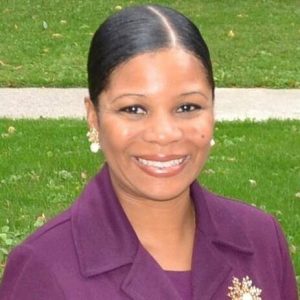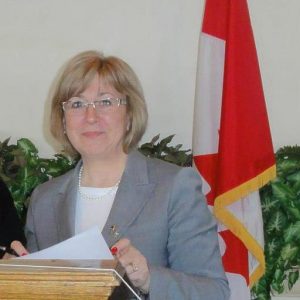Did the Niagara Falls Water Board meet illegally to carry out their reorganization of the body? And are Water Board customers about to get hit with an expensive new labor contract?
Last Thursday’s Dyster Administration-engineered coup on the Niagara Falls Water Board has left members of the board’s former majority crying foul, and pointing to violations of state open government laws that have left the actions of the new politically-tinged majority shrouded in secrecy.
A meeting held the morning after the coup is raising questions. That organizational meeting, held Friday at the city’s water treatment facility with the board’s new majority the only members in attendance — along with their new attorney, who one would expect to be fully-versed in state open government rules — apparently was held in near-total secrecy.
Members of the former majority were not notified of the meeting. Neither were members of the public.
That has left one board member questioning the legality of the board’s actions and raising the specter of public scandal.
“I can tell you: the New York State Open Meetings Law is there to ensure that government agencies act in the public’s interest,” said local attorney Ted Janese, one of the five Water Board members and a member of the former board majority. “Secret meetings to spend public dollars undermine the public’s trust, and point to the potential for gross corruption.”
The Friday meeting put the finishing touches on Thursday night’s coup, where Water Board Executive Director Paul J. Drof, Director of Infrastructure Norm Allen, Director of Administration and Contracts Anthony Hahn, and the board’s attorney, John J. Ottaviano, all got the axe.
Janese pointed to the abrupt firing of top Water Board employees as both costly and “a clear violation of their contracts,” but said he was even more concerned about the hiring process used to bring new Water Board employees on board.
The new hires — Executive Director Rolfe Porter, Director of Administrative Services and Human Resources James Perry, Director of Financial Services Kendra McClain and attorneys David Sanchez and Nicholas Amigone III — were sprung on the board’s former majority.
Janese says that no proper vetting process occurred for the new hires and as a result, the Water Board had to add an extra individual to the payroll to cover holes in the new management team’s résumés.
“I was never even apprised of all potential candidate names until Thursday night’s meeting,” Janese said.
“How did they identify these candidates? When did they interview them? Did they post the jobs? Did they give anyone else a chance to apply?” Janese demanded. “It certainly raises a lot of red flags.”
The Water Board coup came just days after Mayor Paul A. Dyster and the City Council installed new board members Nicholas Forster and Daniel O’Callaghan.
Forster, who also chairs the Niagara County Democratic Party, which seems mired in permanent minority status outside Niagara Falls, and O’Callaghan were joined in their majority by former county legislator Renae Kimble, who had been appointed by former Assemblyman John Ceretto.
The swift speed of the coup has led to questionable procedures being followed during the hiring — and raise doubts about the legality of the entire hiring process. According to eyewitness accounts from the Thursday meeting, when the board hired its new management team, the board approved contracts. However, no contracts actually had been written at the time.
Janese has requested copies of the contracts, but has yet to be provided them, he told the Reporter Wednesday night. He also hasn’t been provided résumés for any of the new employees, with the exception of Porter.
“We don’t know who was interviewed. The job was clearly never advertised. And strangest of all, contracts were approved that didn’t even exist,” Janese said.
What’s more, according to Janese, the board’s new appointees are seriously lacking in basic certification requirements to do their job, not exactly a first in Paul Dyster’s Niagara Falls.
“No member of this new leadership team has an operators’ license,” Janese stated. “That resulted in an extra $30,000 having to be added to the budget line to keep an individual with an operator’s license on hand.”
There are also quid-pro-quo allegations swirling which involve a new written contract proposal supplied by the union representing Water Board employees just days before the coup, and an address by Forster at a Water Board meeting held at the end of January, where he admitted to meeting with union members to discuss their lack of a contract prior to beginning his term on the board.
Forster then introduced a resolution at that January meeting — his first — that would have eliminated rules in the Water Board By-Laws that preclude board members from contacting individual employees about board operations.
Representatives of the United Steel Workers, Operating Engineers Local 463, Bricklayers Local 3, IBEW Local 237 and the Painters and Glazers submitted new contract demands — including significant retroactive pay increases going back to 2010 and 4 percent annual increases for the next five years — upon the appointment of Forster and O’Callaghan. This written proposal comes after seven years of deadlocked talks.

Nick Forster has assumed command of the water board – but most likely temporarily. Will it be long enough to get new contracts for union members and will it increase water rates for residents?
Despite the coup, which certainly seems to have the union seal of approval, and the union demands, there are doubts whether the new majority will actually be able to enact lasting policy. Since Kimble is a holdover awaiting replacement by the nominee of new Assemblyman Angelo Morinello, the tenuous majority will cease to exist as soon as Morinello’s pick is approved by the New York State Assembly.
Under state law that established the Water Board a decade and a half ago, the board consists of a mayoral appointee, an appointee of the City Council, an appointee of the state senator representing the district (in this case, Janese, appointed by Sen. Robert G. Ortt), an appointee of the local Assemblyman (currently Kimble), and a gubernatorial appointee.
No doubt Forster, O’Callaghan and Kimble were counting on that last member, Gov. Andrew Cuomo’s appointee Gretchen Leffler, the board’s former chairman, to vote with them. That did not occur.
With Leffler and Janese awaiting a new Assembly appointee, Forster’s quasi-majority could very quickly be returned to minority status, and its actions overturned. Of course, this also raises troubling concerns about the delays in that appointment’s approval by the Democrat-controlled Assembly, which seems to be dragging the appointment to a near-standstill, no doubt to give the Forster majority time to approve contracts.
Meanwhile, the board’s former attorney, among those ousted at last Thursday’s meeting, said he is “disappointed” by the new board majority’s actions.
“I have 30 years of municipal and public authority law experience and am proud of the 10 years I served as Water Board legal counsel,” Ottaviano said when contacted by the Reporter. “I’ve served both Democrats and Republicans and never had a problem until now.”
Ottaviano declined to comment on whether laws were broken by the new board majority.

























